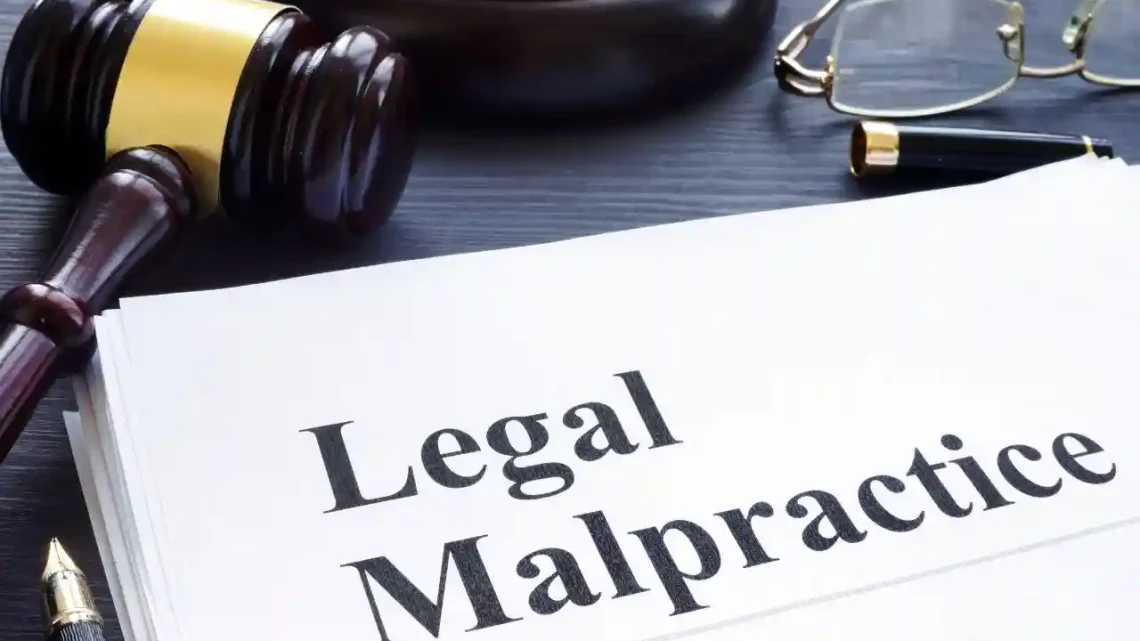
Understanding Legal Malpractice and How to Protect Your Rights
March 12, 2024Legal malpractice is a serious concern that can have significant implications for individuals involved in legal matters. It occurs when an attorney fails to provide competent and diligent representation, resulting in harm to the client. Understanding the key aspects of legal malpractice and knowing how to protect your rights in such cases is crucial for anyone seeking legal assistance.
What is Legal Malpractice?
Legal malpractice, also known as attorney negligence, refers to the failure of an attorney to perform at the level expected of a reasonably competent lawyer in the same or similar circumstances. It is essential to recognize that attorneys have a duty of care to their clients, and any breach of this duty can lead to legal malpractice.
Definition of Legal Malpractice
Legal malpractice occurs when an attorney’s conduct falls below the standard of care expected in the legal profession, resulting in harm to the client. This can include errors in judgment, failure to meet deadlines, inadequate preparation, or lack of communication with the client.
Standard of Care in Legal Malpractice
The standard of care in legal malpractice refers to the level of competence and diligence that a reasonable attorney would exercise in a similar situation. Attorneys are expected to possess the necessary skill and knowledge to handle legal matters effectively and ethically.
Attorney’s Duty of Care
An attorney’s duty of care encompasses the responsibility to act in the best interests of their clients, provide competent representation, communicate effectively, and avoid conflicts of interest. Any deviation from these obligations can constitute legal malpractice.
How to Prove Legal Malpractice
Proving legal malpractice requires demonstrating that the attorney breached their duty of care and that this breach resulted in harm to the client. Several key elements must be established to prove legal malpractice.
Must Prove Negligence
In legal malpractice cases, it is essential to show that the attorney acted negligently by failing to meet the standard of care expected in similar circumstances. This can involve errors in judgment, lack of communication, or failure to conduct thorough research.
Proving Breach of Duty
Proving a breach of duty involves illustrating how the attorney’s actions or inactions deviated from the expected standard of care, leading to harm or negative outcomes for the client.
Establishing Attorney-Client Relationship
It is imperative to establish that an attorney-client relationship existed, and the attorney owed a duty of care to the client. This involves demonstrating that the client sought the attorney’s professional services and the attorney agreed to provide legal representation.
Filing a Legal Malpractice Claim
Individuals who believe they have been victims of legal malpractice must take specific steps to protect their rights and seek appropriate remedies for the harm caused by attorney negligence.
Understanding the Statute of Limitations
Legal malpractice claims are subject to statutes of limitations, which impose deadlines for filing lawsuits. It is crucial to be aware of these time constraints to avoid forfeiting the right to pursue a legal malpractice claim.
Legal Malpractice Lawsuit Process
Initiating a legal malpractice lawsuit involves gathering evidence, drafting legal complaints, and navigating court procedures. Seeking legal guidance from experienced attorneys is invaluable during this complex process.
Importance of Hiring a Legal Malpractice Lawyer
Engaging the services of a skilled legal malpractice lawyer is essential for effectively presenting the case and maximizing the chances of securing a favorable outcome. These attorneys specialize in handling legal malpractice claims and can provide valuable support and representation.
Protecting Your Rights in a Legal Malpractice Case
Protecting your rights in a legal malpractice case demands proactive measures to safeguard your interests and pursue appropriate compensation for any harm suffered.
Importance of Malpractice Insurance
Attorneys are often covered by malpractice insurance, which can provide financial protection for clients in the event of legal malpractice. Understanding the insurance coverage available can be crucial for seeking redress.
Preserving Evidence and Meeting Deadlines
Preserving evidence related to the legal malpractice and adhering to legal deadlines are vital for building a strong case. Maintaining thorough documentation and meeting procedural timelines can support the pursuit of a legal malpractice claim.
Seeking Compensation for Personal Injury Due to Legal Malpractice
Those who have suffered personal injury or financial loss due to legal malpractice can seek compensation for damages incurred. This may include reimbursement for financial losses, emotional distress, and other relevant harm caused by the legal malpractice.
Seeking Legal Representation for Legal Malpractice
Engaging the services of proficient legal representation is crucial for navigating the complexities of legal malpractice claims and advocating for your rights.
Selecting the Right Attorney
When seeking legal representation for a legal malpractice case, choosing the right attorney with relevant experience and expertise is paramount. Consideration should be given to the attorney’s track record and proficiency in handling legal malpractice matters.
Consulting about a Legal Malpractice Claim
Consulting with legal professionals about a potential legal malpractice claim can provide valuable insights and guidance regarding the merits of the case, potential legal pathways, and strategies for seeking resolution.
Challenges of Proving Legal Malpractice
Proving legal malpractice can be complex and challenging due to the need to demonstrate specific elements, navigate legal procedures, and contend with potential defenses raised by the accused attorney. Seeking legal representation from attorneys well-versed in legal malpractice can assist in overcoming these hurdles.
What is legal malpractice?
Legal malpractice occurs when an attorney fails to provide the standard of care and skill that a prudent attorney in the same specialty would have provided under similar circumstances. This can include acts of professional negligence or breaches of fiduciary duty.
How can I protect my rights if I suspect legal malpractice by my attorney?
If you believe your attorney committed legal malpractice, it is essential to consult with legal malpractice attorneys who specialize in such cases. They can help you determine if you have a valid claim for legal malpractice and guide you through the litigation process.
What are the common examples of legal malpractice?
Some common examples include missed deadlines, conflicts of interest, insufficient case preparation, failure to know or apply the law, and inadequate communication with the client.
What must I prove in a legal malpractice claim?
In a legal malpractice action, you typically need to establish four elements: the existence of an attorney-client relationship, the attorney’s negligent conduct or breach of duty, causation between the attorney’s conduct and the harm suffered, and the damages incurred as a result of the malpractice.
What should I do if I believe my attorney committed legal malpractice?
If you believe your attorney has been negligent in handling your case, you should find a lawyer who specializes in legal malpractice claims. They can help you evaluate the situation and determine if you have grounds for a legal malpractice case against your attorney.
How do I file a legal malpractice case against my attorney?
To file your case, you will need to gather evidence of the attorney’s negligence and damages suffered as a result. It’s advisable to seek the guidance of legal malpractice attorneys who can assist you in navigating the process and representing your best interests in the litigation.
Can legal malpractice occur in different types of cases, such as medical malpractice or other legal issues?
Yes, legal malpractice can occur in various types of cases, including medical malpractice, personal injury, real estate transactions, and business litigation, among others. The underlying case can involve any legal matter where an attorney’s negligent conduct has resulted in harm to the client.
What action can I take if I suspect my attorney has committed legal malpractice?
If you believe your attorney has engaged in professional negligence or breached their duty to you, you may have grounds to make a claim for legal malpractice. Consulting with legal malpractice attorneys can help you understand your options and the potential next steps to take action.
How can I determine if my attorney’s conduct constitutes legal malpractice?
The attorney’s conduct must be measured against the standard of care and skill that a prudent attorney in the same specialty would have provided under similar circumstances. If it is found that the attorney had not been negligent, then there may not be a valid claim for legal malpractice.
What role does the state bar play in handling legal malpractice complaints?
The state bar oversees the ethical conduct of attorneys and may investigate complaints related to legal malpractice. If you have concerns about your attorney’s conduct, you can contact the state bar to inquire about filing a complaint and seeking resolution for any potential issues.


